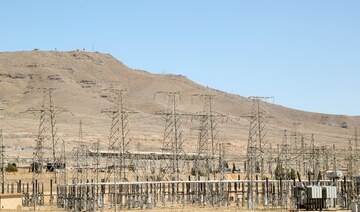Syria’s Electricity Crisis Receives Boost from Qatar as US Official Confirms Approval
Beirut – A significant development has emerged in the ongoing efforts to address Syria’s severe electricity shortages, with Qatar set to provide the war-torn country with gas via Jordan. This move is expected to improve Syria’s meager electricity supply and bolster its new rulers, who have been facing numerous challenges since their ascension to power. The agreement between Qatar’s state development fund and Jordan’s energy ministry has been met with approval from the US administration, according to a senior official.
This initiative marks a significant tangible support for the new administration in Damascus by Qatar, one of the region’s staunchest opponents of the now-deposed Bashar Assad and strongest backers of the rebels-turned rulers who replaced him. The gas deal, which will see Syria receive an approved supply of natural gas via Jordan to address its electricity shortage, has been hailed as a crucial step towards resolving the crisis.
Key Details of the Agreement
According to reports, Qatar’s state development fund will provide Jordan’s energy ministry with a grant to supply Syria with gas. The initiative is expected to be fully funded by Qatar’s fund, with Jordanian energy minister Saleh Al-Kharabsheh stating that the entire project will be covered by the Qatari contribution.
The gas will be received at Jordan’s Red Sea port of Aqaba and pumped to Syria via the Arab Gas Pipeline. This pipeline runs from Aquaba north across Jordan to Syria, providing a vital link between the two countries. The transfer of gas will occur through a segment of the pipeline that connects Jordan and Syria.
Impact on Electricity Generation
The initial boost to electricity generation is expected to be significant, with the Deir Ali power plant in southern Syria set to increase its output by 400 megawatts per day. This represents a substantial increase in capacity, which will help alleviate the severe power shortages plaguing the country.
In fact, estimates suggest that Syria’s recent power capacity ranges up to around 4,000 MW. The addition of this new gas supply will undoubtedly contribute to resolving the crisis, although it is crucial to note that damage to the electricity grid means that generating or supplying more power is only part of the problem.
Challenges Ahead
While the agreement represents a major breakthrough in addressing Syria’s electricity shortages, there are still several challenges ahead. For instance, Damascus must make significant repairs to its internal network before it can receive and utilize the new gas supply. Furthermore, matters surrounding financing remain unclear, with some details yet to be resolved.
In addition to these logistical hurdles, the US and Jordanian officials have expressed their approval for the plan. However, despite this progress, several questions regarding the agreement’s implementation and long-term sustainability remain unanswered. It is essential that all parties involved work together to ensure a seamless transition and effective utilization of the new gas supply.
US Involvement in Syria
The US administration’s nod of approval for the deal suggests that Washington remains actively engaged in Syria, despite its cautious approach compared to European states in easing sanctions. The efforts to encourage a deal between Kurdish forces in Syria’s north and Damascus highlight this ongoing engagement, which is critical in resolving the crisis.
In light of these developments, it becomes increasingly clear that addressing Syria’s electricity shortages will require sustained cooperation among all parties involved. By working together, the country can overcome its current challenges and create a more stable future for its citizens.
Conclusion
The agreement between Qatar’s state development fund and Jordan’s energy ministry marks a significant step towards resolving Syria’s severe electricity crisis. With US approval and Qatari support, this initiative has the potential to provide a substantial boost to Syria’s meager electricity supply and bolster its new rulers. However, challenges remain ahead, including the need for internal network repairs and clarification on financing matters. Despite these hurdles, the agreement represents a crucial step towards resolving the crisis and creating a more stable future for Syria.

